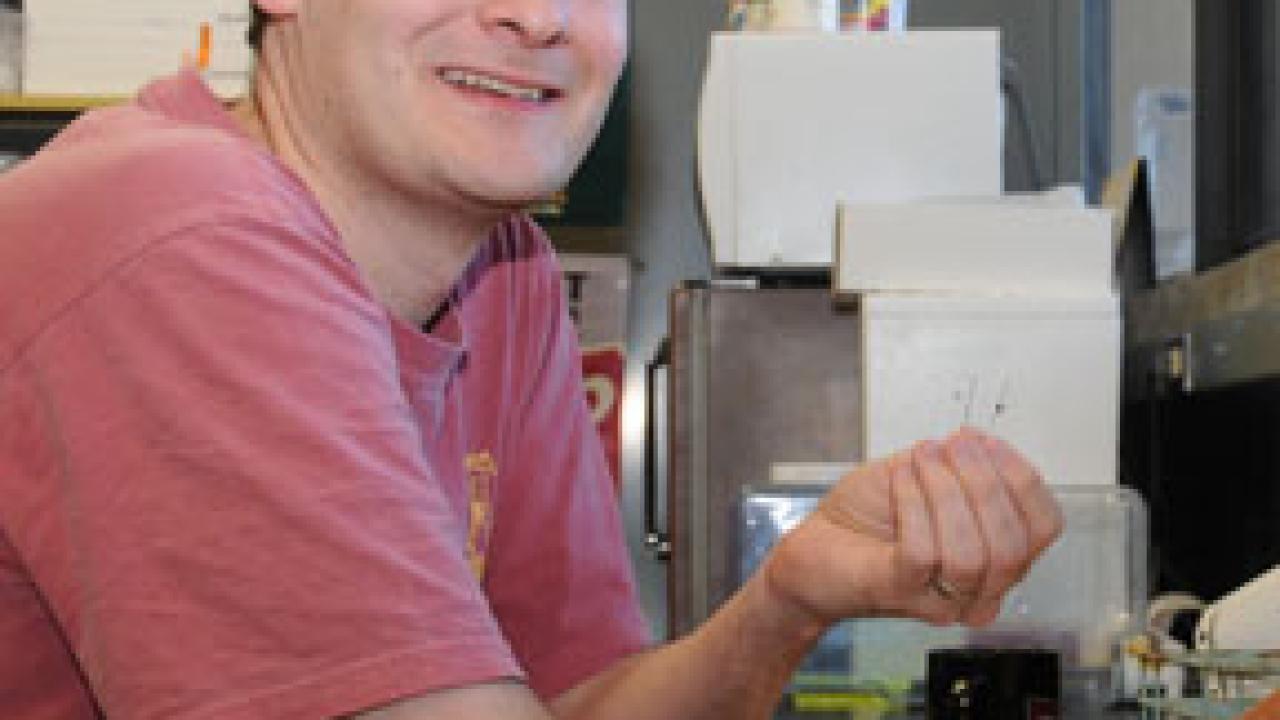A major cause for biodiversity may be biodiversity itself, says UC Davis evolutionary ecologist Andrew Forbes. In studying the Diachasma alloeum wasp that feeds on the apple maggot, the researchers discovered that the maggot’s shift in hosts triggered a cascading effect on the ecosystem.
The maggot (Rhagoletis pomonella), a North American native, shifted from its ancestral hawthorn host to apples from Europe less than 250 years ago. In turn, D. alloeum made some changes of its own — so much so that Forbes and his fellow researchers discovered two distinct populations that are partially reproductively isolated, on their way to becoming separate species.
“The research shows the process of speciation in action and might tell us more about why certain groups of organisms are more diverse than others.” said Forbes, a postdoctoral researcher in Professor Jay Rosenheim’s laboratory in the Department of Entomology. “It also suggests why certain areas and-or biotic regions may have more species than others.”
The research, “Sequential Sympatric Speciation Across Trophic Levels,” published Feb. 6 in the journal Science, provides insight into what Forbes calls “the tangled bank of life.”
“As new species form, they create new opportunities for others to exploit, which, in turn, begets ever more new species,” he said. “And all this is happening right before our eyes in our own back yards.”
Forbes’ team studied genetic differences, diapause length and fruit odor preferences for apple-associated populations of D. alloeum wasps collected from numerous Midwestern sites. They collected the same measurements for D. alloeum in hawthorn, blueberry and snowberry.
Their work showed that D. alloeum associated with apple has genetic, phenological and behavioral differences that isolate it from the other wasp populations. “D. alloeum attacks only R. pomonella complex flies found on these four host plants,” Forbes said, “so we can be fairly confident that the apple wasp is derived from one of the other wasp populations and has rapidly evolved into this new race.”
Kathy Keatley Garvey is a communications specialist with the Department of Entomology.
Media Resources
Dave Jones, Dateline, 530-752-6556, dljones@ucdavis.edu
